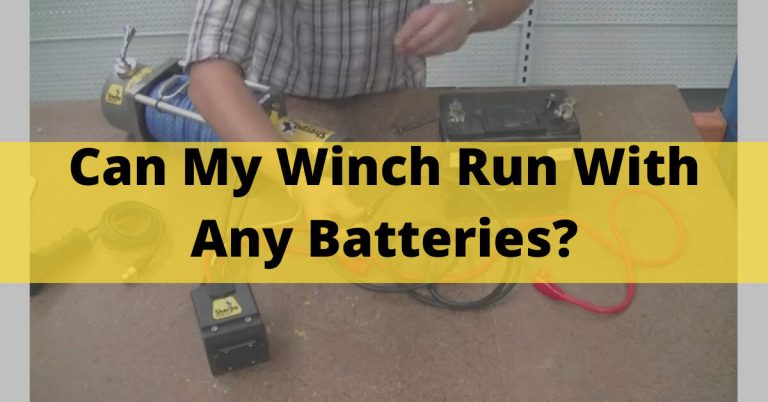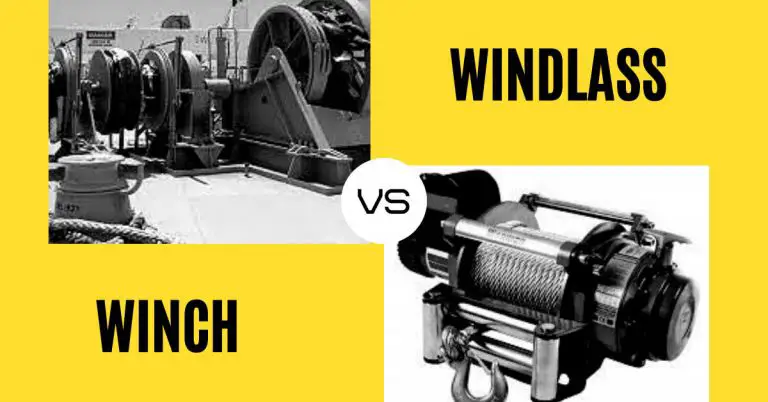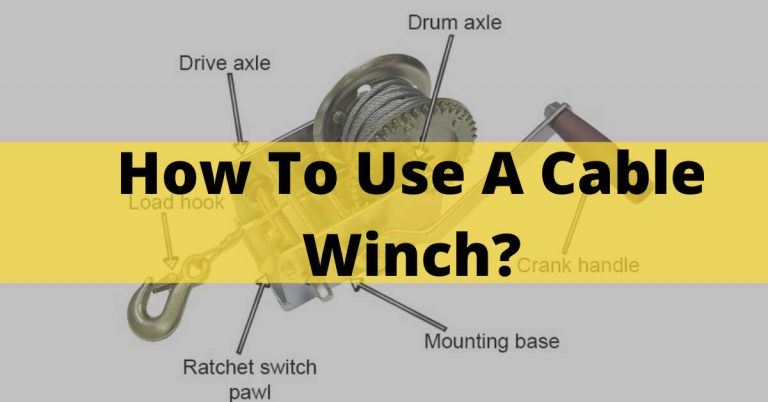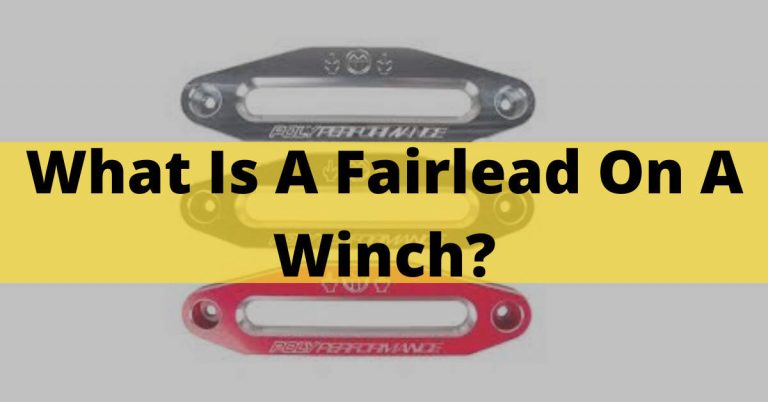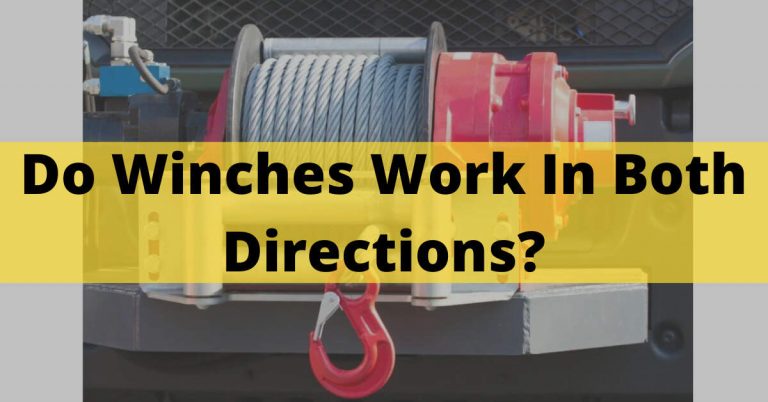Is A Circuit Breaker Needed Or Not For The Winch? – Winch wiring in 2023
In the world of heavy-duty machinery and equipment, safety is paramount. Whether working on a construction site, managing industrial operations, or engaged in off-road adventures, it holds when it comes to winches, which are essential for lifting, pulling, and hauling heavy loads.
A circuit breaker is recommended for winches to prevent overload and short circuits and ensure operator safety. While it adds complexity, the benefits of protecting the winch’s electrical system and enhancing longevity outweigh the potential drawbacks.
In this article, we will delve into the importance of circuit breakers for winches, examining their benefits, potential drawbacks, and the considerations that must be considered.
Table of Contents
The Role of Circuit Breakers:
A breaker is a safety device that automatically interrupts electrical flow when it detects a fault or overload in the circuit.
It protects against electrical fires, equipment damage, and potential harm to operators. In winches, circuit breakers can prevent accidents and minimize damage.
Benefits of Circuit Breakers for Winches:
1. Overload Protection:
Winches are subjected to varying loads, and exceeding their capacity can lead to overheating and damage.
A circuit breaker can detect this overload and interrupt the electrical flow, preventing overheating and potential malfunction.
2. Short-circuit Prevention:
A short-circuit can occur due to a fault in the wiring or a sudden surge in current. Circuit breakers can rapidly detect and interrupt the circuit to prevent damage to the winch’s electrical components and minimize the fire risk.

3. Enhanced Operator Safety:
Circuit breakers contribute to operator safety by reducing the risk of burns, electrical shock, and other injuries. They create a safer working environment by swiftly cutting off the electrical supply in case of a fault.
4. Equipment Longevity:
Preventing electrical overloads and short circuits can extend the lifespan of the winch. By ensuring that the winch operates within its intended capacity, circuit breakers contribute to equipment durability and longevity.

Considerations and Drawbacks:
While circuit breakers offer clear safety advantages, there are specific considerations and potential drawbacks to keep in mind:
1. Complexity:
Installing a circuit breaker adds complexity to the electrical system of the winch. It may require additional wiring and components, potentially increasing the overall cost and maintenance requirements.
2. Response Time:
Circuit breakers’ response time varies depending on their design and rating. A circuit breaker’s response time could impact the outcome in critical situations. Therefore, choosing the right type and rating of circuit breaker is essential.

3. User Experience:
Some winch operators may find that circuit breakers can trip more frequently if the winch is used near its capacity. While this is a sign of the circuit breaker working as intended, it might lead to interruptions in operations.
4. Environmental Factors:
Winches are often used in challenging environments, including extreme temperatures, moisture, and debris. Circuit breakers must be selected or designed to withstand these conditions.
Making an Informed Decision:
Here are steps to help you make an informed decision:
- Assess Risk: Evaluate the potential risks of operating the winch without a circuit breaker. Consider the type of loads, the environment, and the likelihood of electrical faults.
- Understand Capacity: Understand the winch’s load capacity and how frequently it operates near or at its limits. This knowledge can guide you in selecting an appropriate circuit breaker.
- Choose the Right Circuit Breaker: If you decide to install a circuit breaker, ensure it is correctly rated for the winch’s electrical system and capable of handling the anticipated load.
- Regular Maintenance: Whether using a circuit breaker or not, regular maintenance of the winch’s electrical components is crucial to ensure proper functioning and safety.
How do I choose the correct circuit breaker for my winch?
Choosing the correct circuit breaker for your winch involves carefully considering several factors to ensure optimal safety and performance. Here’s a step-by-step guide to help you make an informed decision:
1. Determine Winch Specifications:
Understand your winch’s specifications, including its rated load capacity, voltage, and current requirements.
These specifications will guide your selection of a circuit breaker that can handle the winch’s electrical demands.
2. Calculate Load Conditions:
Consider the load conditions under which your winch will operate. Determine the maximum load you expect to handle, as this will impact the current passing through the circuit breaker during operation.
3. Choose the Correct Type:
Circuit breakers come in various types, including thermal, magnetic, and hydraulic. Select a type that suits your winch’s application.
For instance, a winch used in heavy-duty industrial settings might require a hydraulic circuit breaker for reliable protection.
4. Determine Response Time:
Consider the response time required for your winch’s operations. In critical applications, faster response times are crucial to prevent equipment damage or accidents. Choose a circuit breaker with a response time compatible with your operational needs.
5. Environmental Conditions:
Evaluate the environment in which your winch will be used. If it is exposed to extreme temperatures, or other challenging conditions, choose a circuit breaker designed to withstand such environments.
6. Overcurrent Protection:
A circuit breaker’s rating should be slightly higher than the anticipated current draw of your winch. It ensures that the breaker trips only when there is a genuine fault, avoiding unnecessary interruptions during regular operation.
7. Consider Voltage:
Ensure the circuit breaker’s voltage rating matches the winch’s electrical system. A circuit breaker with a voltage rating lower than the winch’s supply can lead to malfunctions or hazards.
8. Installation Requirements:
Evaluate the physical space available for installing the circuit breaker. Consider factors such as mounting options and wiring connections to ensure compatibility with your winch’s design.

9. Safety Standards:
Choose a circuit breaker that adheres to industry safety standards and regulations. It ensures the breaker is designed and manufactured to meet specific safety criteria.
10. Consult Experts:
If you need more clarification about selecting a suitable circuit breaker, consult professionals experienced in electrical systems and winch operations. They can provide valuable insights and recommend appropriate options based on your requirements.
11. Consider Long-Term Costs:
While initial costs are essential, consider the long-term benefits of investing in a high-quality circuit breaker that offers reliable protection and minimizes maintenance and downtime costs.
Frequently Asked Questions:
1. Are there different types of circuit breakers for winches?
Yes, circuit breakers come in various types, such as thermal, magnetic, and hydraulic. The choice depends on the specific requirements of the winch and its electrical system.
2. Can a circuit breaker prevent all electrical issues with winches?
Circuit breakers effectively prevent overloads and short circuits, but routine maintenance, proper operation, and following safety guidelines are also essential for avoiding issues.
3. Are circuit breakers useful for all types of winches?
Yes, circuit breakers are helpful for various types of winches, including those used in industrial, automotive, and recreational settings. The level of protection they offer applies universally.
4. Do circuit breakers have a specific lifespan?
Circuit breakers are designed for durability, but their lifespan can vary based on usage and environmental factors. A regular inspection ensures they remain effective.
6. Can circuit breakers be retrofitted to existing winches?
Yes, circuit breakers can often be retrofitted onto existing winches. However, it’s vital to consult professionals to ensure proper integration and compatibility.
Conclusion:
In the era of winches, safety is non-negotiable. While the need for a circuit breaker depends on several factors, its benefits regarding overload protection, short circuit prevention, and operator safety must be considered.
By carefully assessing your requirements and considering potential drawbacks, you can determine whether a circuit breaker is a prudent addition to your winch’s electrical system.
Ultimately, the goal is to operate winches efficiently and safely, ensuring smooth operations and minimizing risks in various work environments.

